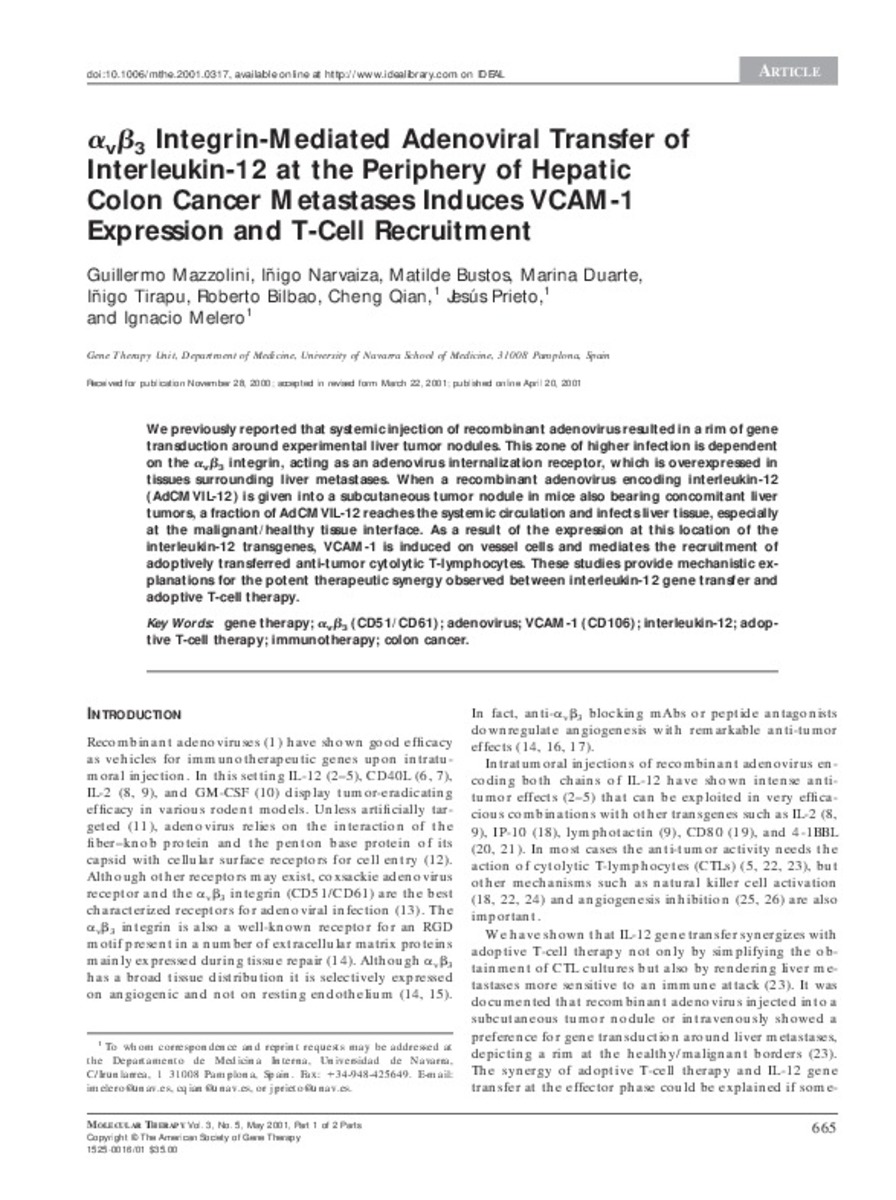Alpha(v)beta(3) integrin-mediated adenoviral transfer of interleukin-12 at the periphery of hepatic colon cancer metastases induces VCAM-1 expression and T-cell recruitment
Keywords:
Gene therapy
avb3 (CD51/CD61)
Adenovirus
VCAM-1 (CD106)
Interleukin-12
Adoptive T-cell therapy;
Immunotherapy
Colon cancer
Publisher:
Nature Publishing Group
Citation:
Mazzolini G, Narvaiza I, Bustos M, Duarte M, Tirapu I, Bilbao R, et al. Alpha(v)beta(3) integrin-mediated adenoviral transfer of interleukin-12 at the periphery of hepatic colon cancer metastases induces VCAM-1 expression and T-cell recruitment. Mol Ther 2001 May;3(5 Pt 1):665-672.
Statistics and impact
0 citas en

0 citas en

Items in Dadun are protected by copyright, with all rights reserved, unless otherwise indicated.








